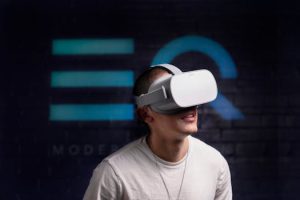Neural Privacy Guards: Brain Data Rights Experts
Welcome to the era of brain data exploration and privacy protection! As we continue to push the boundaries of technology, we are now able to access and analyze brain data like never before. However, with this advancement comes a new set of challenges regarding the protection of our most personal and intimate data – our thoughts and memories. This is where neural privacy guards, or brain data rights experts, come into play.
Understanding Neural Privacy Guards
Neural privacy guards are professionals who specialize in protecting brain data and advocating for the rights of individuals to control their own thoughts and memories. With the emergence of brain-computer interfaces (BCIs) and other brain-related technologies, the need for these experts has never been greater.
The role of neural privacy guards is multifaceted. Firstly, they work to ensure that brain data is collected, stored, and used ethically and with the consent of the individual. This includes protecting against any potential misuse or manipulation of brain data. Secondly, they are responsible for educating the public and policymakers about the importance of brain data privacy and advocating for legal and ethical frameworks to protect it.
The Importance of Brain Data Privacy
Our brains are the most complex and intimate part of our bodies, and our thoughts and memories are a reflection of who we are as individuals. As technology advances and we gain the ability to access and analyze this data, it becomes increasingly important to protect it from any unauthorized use or access.
Furthermore, our brains are not immune to vulnerabilities and potential ethical issues. For example, imagine a scenario where a person’s brain data is accessed without their consent and used for targeted advertising or to manipulate their thoughts and behavior. This is where neural privacy guards step in to ensure that individuals have a say in how their brain data is used and that it is done ethically.
The Need for Neural Privacy Guards in Brain-Computer Interfaces (BCIs)
Brain-computer interfaces (BCIs) have gained significant traction in recent years, with the potential to revolutionize the way we interact with technology. These devices work by directly interpreting brain signals, allowing us to control devices with our thoughts.
While BCIs offer promising opportunities for people with disabilities, they also raise questions about privacy and security. Neural privacy guards play a crucial role in ensuring that the brain data collected by BCIs is protected and used ethically. They work with manufacturers and developers to establish protocols for handling sensitive data and to advocate for the privacy rights of BCI users.
The Future of Neural Privacy Guards
With the rapid advancement of technology, the need for neural privacy guards will only continue to grow. As our understanding of the brain and brain data deepens, there will be even more ethical considerations and concerns to address. Therefore, it is essential for society to recognize the importance of neural privacy guards and support their work.
In addition to protecting individuals’ rights to their brain data, neural privacy guards also have an important role to play in shaping policies and regulations to ensure ethical use of brain data. It is crucial to have dedicated experts who understand the complexities of brain data and are able to advocate for its protection.
In Conclusion
Neural privacy guards are the guardians of our most personal data – our thoughts and memories. As we continue to make strides in technology, their role in protecting our brain data becomes increasingly important. From ensuring ethical use of brain data to advocating for legal frameworks, these experts play a vital role in shaping the future of brain data privacy.










